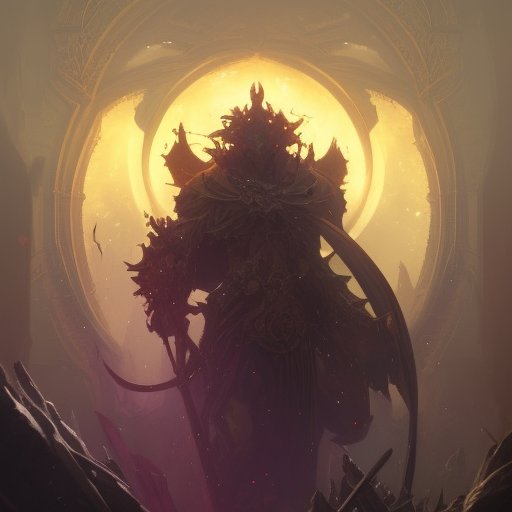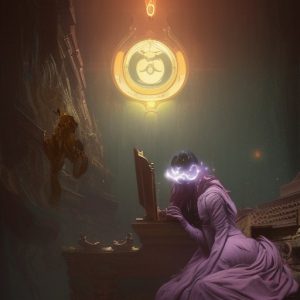
In a world controlled by omniscient beings, the lottery is no longer left to mere chance. The manipulation of luck keeps the masses in line, with those in power holding all the cards. In this article, we explore the science behind this control and the moral implications of a society built on predetermined outcomes. We delve into the history of lottery control and the possible outcomes for a future where fate is no longer up to chance. But despite the efforts of the brave few who rebel against the system, the lottery remains a thrill that many cannot resist.
I. Introduction
Welcome to a world without the Lottery. Imagine a life where every outcome is predetermined, where chance, whim, and risk have all been stripped away. A world where every detail is carefully planned, and nothing is left to chance. The dullest of dystopias, the most boring of worlds. Now, thank the stars that we do not live in that world, for we still have the Lottery, and that means we still have hope, excitement, and dreams.
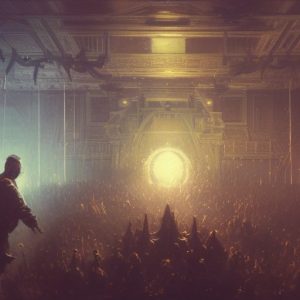
As a child, I remember running to the corner store to buy tickets for our family’s weekly lottery pool. We hoped, imagined, and dreamed of hitting that jackpot, of finally being able to live out our wildest fantasies. The thrill of the lottery was not just in the possibility of winning but in the chance, the uncertainty that anything could happen. It was a breath of fresh air in an otherwise stagnant and controlled world.
But what if I told you that there was a society where the Lottery was not determined by chance, but by a select few with an omniscient knowledge of the future? Would you still find the game worth playing? Or would the thought of the outcome being predetermined by higher powers leave a bad taste in your mouth?
In this article, we will examine the idea of omniscient beings controlling the Lottery, the implications of such control, and the actions of those who dare to challenge the status quo. But first, let us take a moment to appreciate the importance of the Lottery in a world where chance and risk have become reserved for the few, rather than the many. Welcome to the Lottery, where hope still exists, and anything can happen.
II. The Science of Luck
Luck; sometimes it seems to be on your side, sometimes it works against you. It’s what makes the Lottery famous: that chance can play a role in anyone winning. But what if that luck was not just a random fluctuation but a carefully manipulated force? Omniscient beings, with their advanced knowledge of the future, manipulate fate to aid in their goals. Control of the Lottery is just another way they exercise their influence, ensuring outcomes that fit their needs.
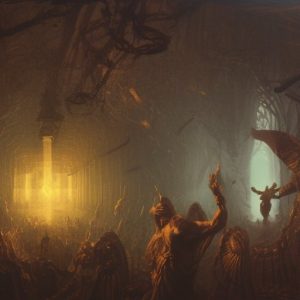
To comprehend the mechanics of how these beings manipulate fate, we need to understand how the universe works. Quantum physics states that subatomic particles behave differently when observed. Schrödinger’s cat in the box is both alive and dead until observed. The fact that observation makes a difference means that the future is not set in stone- at least, not until it is observed. Omniscient beings use this knowledge to their advantage, creating a set of conditions that will lead to their desired outcome.
But how do they ensure their plan works? In one scenario, they can ensure that every action of every individual leads to the desired outcome. They might manipulate a person’s decision-making process by inserting thoughts, feelings, and responses, leading them to make the decisions that match the predetermined plan. Or they could set up a series of events, knowing that in each one, the individuals involved will take a specific action that leads to their desired outcome. No stone is left unturned in their quest for control.
So, what does this mean for the Lottery? It means that the outcome of every drawing is already known, and the winnings are awarded according to the predetermined plan. The thrill of taking a gamble is a facade: the winners are already decided long before the ping-pong balls start tumbling. The only true wildcard in the Lottery is whether Omniscient beings will decide to intervene, altering the outcome to suit their purposes.
III. The Ethics of Lottery Control
The Ethics of Lottery Control is a matter of great concern for those who question the moral implications of a society where a few possess the power to control the fate of the many. Every week, millions put their hopes, dreams, and hard-earned money into the lottery, hoping to strike it rich and escape the confines of their mundane existence. But what if that opportunity was not left to chance, but rather controlled by a higher power?

Some may argue that the idea of a select few controlling the lottery may be ethically justifiable. After all, it could be argued that those with an omniscient knowledge of the future are more equipped to determine outcomes that will benefit society as a whole. They could use their power to ensure that funds are directed to those in need, or that resources are allocated in the most efficient manner possible, thus bringing about the greatest good for the greatest number of people.
However, this argument ignores the fact that the power to control the lottery is often accompanied by the power to control society as a whole. Those who possess such power may have their own interests at heart, and could use their knowledge of the future to further their own agendas, rather than the interests of the general public. This could result in a world where the poor are kept poor, and the privileged remain in power, perpetuating an unequal and unfair society.
Furthermore, if the lottery is not left to chance, then the sense of excitement, anticipation, and hope that comes with playing the game is lost. The very act of buying a ticket, of taking a chance, of dreaming of a better tomorrow, is what makes the lottery so special. To remove this element of chance is to destroy the magic that the lottery brings to people’s lives.
IV. The History of Lottery Control
Let us take a stroll through the history of the Lottery. Once upon a time, the Lottery was a game of chance, where anybody could win, regardless of status or knowledge. But such a world was too chaotic for those in power, who desired a more controlled society. Enter the Omniscient Beings, with their advanced knowledge of the future and their ability to manipulate luck to their advantage.
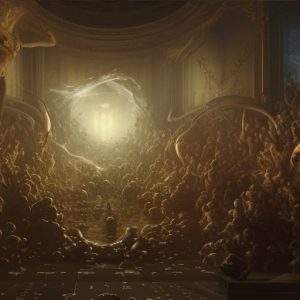
At first, the Lottery was just another tool they used to maintain their hold on society. With the vast sums of money they won, they funded research into even more advanced technology, granting them even greater powers. They also used the Lottery to keep the lower classes in their place, dangling the prize of a better life just out of reach. It was an effective suppression tool, for nothing is more demoralizing than a future predetermined by others.
But as the Omniscient Beings gained more power, they also became more greedy, controlling every aspect of human life. They began to rig the Lottery, creating only the illusion of chance, while they determined the winners and losers. Their wealth became even more substantial, while the rest of the world struggled to survive.
Despite this, there were always those who resisted and fought against the Lottery’s control. They formed groups, networks, and even rebellions, seeking to bring back the true choice and chance that the Lottery used to stand for. Some of these movements were successful, albeit briefly, before the Omniscient Beings crushed them with their superior technology and knowledge of the future.
The world continued to spiral into chaos and control, until everything became predetermined and stagnant. But still, there were those who remember the excitement of the true Lottery, and they continued to fight against the omniscient control of their lives.
The History of Lottery Control is a lesson in the dangers of too much control and manipulation. It serves as a reminder that some things are worth fighting for, even if the odds are stacked against us.
V. The Future of Lottery Control
The future of a society dependent on the Lottery controlled by omniscient beings appears grim. At first glance, having access to the future might seem like a way to avert disaster and make the world a better, more predictable place. But this view is short-sighted, flawed, and incomplete.
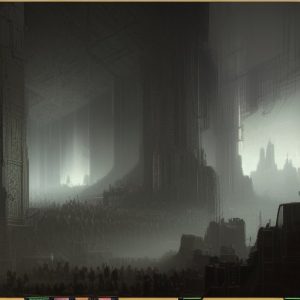
By controlling the Lottery, omniscient beings eliminate the factor of chance and thereby dull the excitement of the game. The Lottery becomes just another controlled substance, as lifeless and predictable as the rest of society.
Worse still, this kind of control is demonstrably evil. It removes the freedom of choice, the randomness of life that makes existence fascinating, and the possibility of overthrowing oppressive statist systems. Such control places the future in the hands of a few, resulting in lack of innovation, stunted economic growth, and suppression of dissent.
Furthermore, the Lottery as a means of providing social services or government funding is doomed to fail. Because the outcome is controlled, it cannot be used efficiently to redistribute wealth or create an equal society. It becomes just another tool used to enrich the already powerful, thereby increasing social inequality and causing suffering to many.
In a society where omniscience controls the Lottery, free will is eliminated, and the human spirit is crushed. The consequences of falling down that slippery slope could mean a world with no spark of creativity, no magic of chance, and no freedom of choice. The future of such a world is dire, a humdrum dystopia where nothing interesting ever happens.
It is not too late, however, to take back control of the Lottery and restore its status as a tool for chance and excitement. The promise of hope and possibility is too great a prize to be left in the hands of those who would crush it. The Lottery should not be controlled by the elite few, but by the many, for the many.
VI. The Rebellion
In a world where the Lottery is controlled by the omniscient, rebellion is a difficult and dangerous path to pursue. But for a few brave souls, the possibility of a future determined by chance rather than fate is worth the risk. Besides, what is the point of living without the thrill of risk and reward?
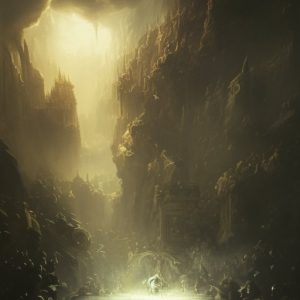
The rebellion started as a small group of lottery players who began to notice patterns and trends in the game’s outcomes. They realized that the Lottery was not entirely based on chance and suspected that higher powers were at play. With a new-found sense of purpose, they banded together and began to gather intelligence on the omniscient.
Their efforts paid off, and they discovered a weakness in the system: a vulnerability that allowed them to manipulate the Lottery’s outcome. With their knowledge, they started to play the Lottery differently, using their newfound understanding to increase their chances of winning. As it turns out, even the all-knowing are not infallible.
The rebellion grew in numbers and strength, and soon they were organizing demonstrations and rallies against the Lottery’s control. They spread their message of hope and chance to the masses, inspiring others to take back control of their own destiny.
But their success was short-lived. The omniscient caught on to their manipulations and swiftly put an end to their rebellion. The leaders of the movement were arrested, and there has been no mention of them since.
However, their message lives on. The idea of taking a chance on fate has been reborn, and the hope of a world where the outcome is not entirely determined by an all-knowing few has been rekindled. The rebellion may have failed, but their legacy lives on, and their fight continues.
VII. Conclusion
So, what have we learned? The Lottery may be controlled by omniscient beings, but that doesn’t mean we can’t enjoy the thrill of taking a gamble. Sure, the odds may be against us, and the outcome may already be predetermined, but that doesn’t take away from the excitement of the game.
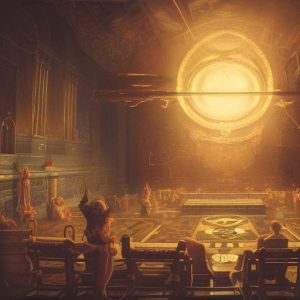
It’s true that we may not be able to control our fate, but we can control our attitude towards it. We can choose to embrace the uncertainty and live in the moment or let fear and doubt control us. The Lottery may be just a game, but it’s a game that reminds us that anything is possible and that we should never stop dreaming.
So, let’s raise our glasses to the thrill of the unknown, to the chance of the unexpected, and to the Lottery. And who knows? Maybe, just maybe, we might hit that jackpot someday. But until then, let’s enjoy the ride and take a chance on fate. After all, as they say, you never know what tomorrow may bring.






